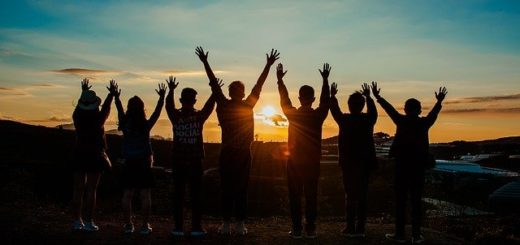Business Development Support Training Consultant
In Kenya, HI is funded by Mastercard Foundation (MCF) to implement a project titled ‘Education and Livelihoods Support for Refugees in Kenya Impacted by COVID_19.The project aims at reaching refugees with micro small and medium enterprises that are hard hit by the pandemic, help them come up with solutions to resuscitate their businesses and come up with long term solutions to help them keep their businesses afloat even in an event of future shocks. The project will target 200 entrepreneurs aged between 18 – 35 years who have had their businesses running for the past two years
The project will ensure safe and dignified living conditions for young women and men with and without disabilities who own micro, small and medium enterprises (MSMEs) via continuous remote learning of needed professional skills and expanding access to finance. The MSMEs owners will receive training on best business practices, challenges facing various types of businesses and opportunities that arise business wise in various types of settings and geographical areas. The MSMEs owners will also receive grants that will boost their businesses and help them overcome future business shocks.
Overall Goal of the Project
The overall goal of the project is to ensure safe and dignified living conditions for young women and men with and without disabilities who own micro, small and medium enterprises (MSMEs) via continuous remote learning of needed professional skills and expanding access to finance.
1. Justification for calling upon a trainer to provide a service.
According to the International Labour Organization (ILO), the pandemic has also resulted in the disruption of most economies, as businesses have been forced to temporarily close to mitigate the risk of spreading the virus. Globally and in Kenya, workers are forced to stay at home, while many are on temporary or partial unemployment. In countries with high levels of informality or weak social protection systems, many workers lack any income support or unemployment benefits, which risks increasing poverty and inequalities. The pandemic’s negative effect on the Kenyan economy resulted in the Central Bank revising its national growth projections downwards from 6.2% to 3.4%. The Central Bank is attributing reductions in growth to disruptions of supply chains and domestic production caused by COVID-19.
The Government of Kenya, trying to cushion the financial impact on MSMEs, reduced the turnover tax rate from the current 3% to 1%. The adverse effects of this impact will be felt disproportionately in the northern counties of Turkana and Garissa which have been economically marginalized for a long time. Among the vulnerable populations in Turkana county are refugees who already have reduced access to economic opportunity. Despite the legal and practical limitations refugees face – the inability to gain formal employment, move, or own property – about 12% of refugee respondents identify as business owners or are self-employed. Of the respondents living in Kakuma town, 39% own businesses. This project will support the recovery of MSMEs in Dadaab, Kakuma, and Kalobeyei, and in particular support MSME owners with disabilities, who need to adapt their business practices to the market disruptions resulting from the pandemic.
2. Description of the required service provision
Specific goals:
To improve the capacity of 200 MSMEs through virtual platforms by:
- Training 200 MSMEs owned by young refugees with and without disabilities on business development services
- Support the development of 200 business continuity plans and action plans by MSMEs after the training.
- Formation and support of virtual learning clubs among MSMEs
The business development Support training will build capacity for MSMEs in preparing financial statements, sales, and marketing strategies and gaining business management skills that are anticipated to have a positive impact on MSME’s development and growth. Business coaching and training will be provided to twenty (20) Business Development Support providers (10 in Dadaab and 10 in Kakuma) who will capacity build 200 MSMEs (100 Dadaab and 100 in Kakuma) with the potential of creating jobs for youth and women.
Service requested:
The services requested from the trainers will be the training on Business Development Support which include;
- Business development services; new marketing strategies and branding, optimizing sales, better customer relations, investment, group dynamics
- Business development curriculum and continuity plan.
- Developing viable investment plans that increase production speed and profitability; skills in basic bookkeeping, financial management, planning, cash flow analysis, human resource management, negotiation – and selling skills and networking.
- Provide an overview of finance options among different commercial and social banks or microfinance institutions.
- Evaluate the training by structured questionnaires and by an open group discussion at the end of the training with the purpose to define next steps, gaps in understanding and needs to follow up training/coaching support.
- Assisting MSMEs to access BDS and equipment providers in order to implement their upgrading plans.
- HI aims to empower youth and women with and without disabilities, to provide them with entrepreneurship education that cultivates comprehensive qualities of entrepreneurship, the value of innovatory spirit, and entrepreneurship abilities. We will reach this objective by providing a dynamic platform on which youth and women can explore their strengths through education and practical application, which will lead them to grow small and medium business. The Business Development Support providers who will be trained will be the critical link to these MSMEs.
Adherence to safety and ethical principles while conducting the training should be ensured through;
- Compliance with HI PSEAH and CP policies;
- Ensuring that women and persons with disabilities are part of trainings and BDS
- Put in place COVID-19 IPC measures
Service from HI:
The services HI will provide will include;
- Logistical arrangements –. PPEs will be provided for participants and all COVID-19 protocols will be adhered to.
- Introductory induction on objectives of the project.
- Availing participants as per the agreement.
- Plan for training venue and training materials.
- Facilitate COVID19 testing and travel to site for the consultant
- Approval of all deliverables including final sign offs for the purpose of making payments.
3. Duration and Place of Performance of the service
- Start date: 5th July 2021 · End date: 16th July 2021
4. Service Duration and Location
The business coaching workshops/training shall be expected to be completed within five working days in each location (Dadaab & Kakuma). Two (2) days after signing of the contract, the trainer/facilitator will have to provide to HI with a plan for implementing training/workshops that will articulate the overall requirements of the TOR, including the proposed methodology, work plan with clear timelines and a budget stipulating the cost of entire mission.
5. Deliverables
At the end of the training,
- Design and submission of a clear set of goals and objectives, deliverables, and methodology (including findings from assessment and a sound mix of theory and practice) before the actual training begins.
- Establish a strong link with TOT from respect counties chamber of commerce for future follow ups and virtual monthly trainings to MSME
- Design and submit to the HI CRR Program Managers a work plan of the named deliverables.
- 5-10 pages report in English. The report will consist of the following:
- Introduction
- Training Curriculum on BDS
- Activity Report
- Findings and recommendations
- Overview of access to finance through MFIs
- Annexes of materials developed
Participants
The training participants will be 20 Business Development Support providers who will then train the 200 MSMES in Dadaab and Kakuma.
6. Anticipated risks
Possibility of escalation of COVID-19 pandemic during training period. Measures will be put to ensure safety of trainers and trainee.
7. Trainers Profile
- Minimum university degree in Business Administration or another relevant field.
- 5 years demonstrated experience of MSME-specific challenges and successful approaches in MSMES development
- Strong interpersonal skills and the ability to work effectively with stakeholders across multiple organizations
- Extensive experience (at least five years) experience in completing similar training/workshops for organizations.
- 3 years comprehensive knowledge of the Business community in refugee settings and host communities.
- 3 years extensive experience in building capacities of MSMEs.
- Demonstrated a high level of professionalism and an ability to work independently and in high-pressure situations under tight deadlines.
- Excellent interpersonal communication skills including experience of facilitation of similar training/workshops and presentation.
- Proven and demonstrated broad knowledge of and ability to utilize principles, methods, techniques, and systems of project management.
- MUST be a certified TOT by International Labor Organization ILO.
- 2 years’ experience working with individual/organization of person with disability is an added advantage
2. Other resources available
- HI staff for administrative and technical support
- Existing HI policies and relevant external bibliographic resources.
The technical offer must be sent to the following email address: procurement.tenders@kenya.hi.org at the latest on or before 17:00hrs EAT on 21st June 2021.
(Please indicate REF: KEN/2021/DADA/KAKU – CALL FOR APPLICATION FOR BUSINESS DEVELOPMENT SUPPORT TRAINING CONSULTANT – DADAAB AND KAKUMA, KENYA
on the subject line in your email application)
Clarifications can be requested on the same email address captioned above on or before 17th June 2021.








